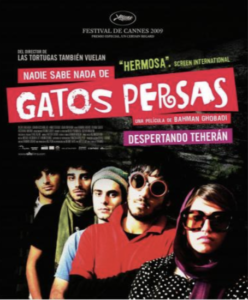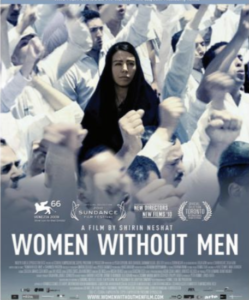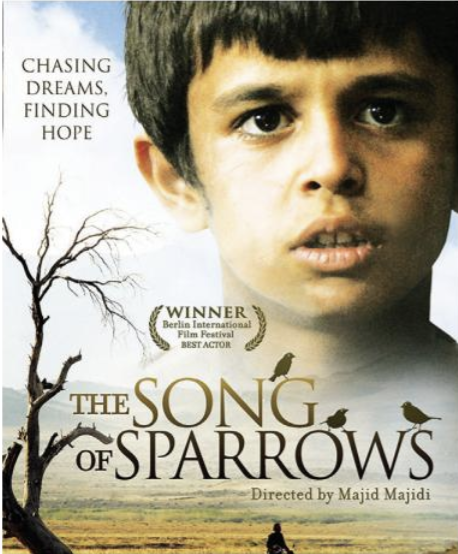By: Ben Theriault, Contributor
As part of this year’s Convocation, USM will be hosting Maine’s first Iranian film festival at the Wishcamper Center, starting Friday, Oct. 20. November 10, the event will instead be held at Maine College of the Arts. The festival will have a selection of two movies per date, starting at 5:30 p.m. for the first choice and 5:45 p.m. for the second for the following four Fridays. The screenings are free to the public.

USM Professor Reza Jalali grew up in a poor, rural village in Kurdistan on the border of Iran and Iraq. For media, his town had no libraries, no televisions and no trustworthy radio stations. This often made him feel isolated and disconnected from the rest of the world. Surrounded by turmoil, he and many other Iranians found solace in cinema. He stated that cinema was a window into the rest of the world for him—now he would like to create that same window into Iran.
Jalali, along with some of his film students will be organizing the event and will guide discussions post-screening. The festival will directly correspond with their class, HON 299: Cinema in Iran.
When asked to comment on the course, Tietze said, “I think doing so [enrolling in the course] has given me a more realistic idea of the Middle East…Watching these films showcases the intelligence and passion the people of Iran hold.”

Former USM Student Body President Humza Khan, another HON 299 student, said, “The major take away for me has been that Iran is a significantly more diverse country than I expected and that the vast amount of negative information about the country is false.”
The upcoming film festival provides the opportunity to see Iran through the work of some of its best directors, including many women filmmakers. The lineup consists of works from directors Abbas Kiarostami, Mohsen Makhmalbaf, Tahmineh Milani, Shirin Neshat, Jafar Panahi and more. Their films fall into the category of Iranian auteur cinema, due to their distinct style and subversive content.
Iranian auteur cinema—also known as Iranian new wave—is a movement that began in Iran during the mid-1960s. The genre was groundbreaking for its portrayal of average Iranian life. Before this shift, there were only far-fetched fantasies that provided no real relation to Iranian citizens. With the emergence of Iranian new wave, Iranians were forced to come to terms with poverty and confront relevant issues in their country.
Unfortunately these actions bring severe consequences. Following the Islamic Revolution of 1979, under the strict supervision of the then supreme leader, Ayatollah Khomeini, extreme censorship regulations emerged.
Violation of these laws result in significant ramifications. A notable example is the sentence of six years imprisonment and a 20 year ban on filmmaking received by Jafar Panahi for the charge of “propaganda against the regime” in 2010—ultimately resulting in house arrest and eventual limited mobility. This prompted him to make the movie This is Not a Film, which he filmed during his house arrest and submitted to the Cannes Film Festival through a USB drive hidden in a cake.
While these restrictions were intended to stint artistic expression, Iranian auteurs manipulated the situation to their favor. The stringent guidelines of the regime actually helped create the style that allows Iranian cinema to be so distinguished. These traits include: shooting film in a quasi-documentary style, using child actors for scenes of affection, using nature as euphemisms for sexual situations, maintaining a realist perspective and focusing on rural life.
When asked what he hoped to achieve with the festival, Jalali admitted he went in with an agenda. He gave the following statement in regards to what he hopes the festival will bring: “Iranians have been dehumanized in the West since the revolution of 1979 and the hostage crisis. In this country we fail to make a distinction between the Iranian regime and Iranian people.” He added, “looking at the them as barbarians, we think they are incapable of feelings and emotions—incapable of producing art and creating beauty.”
Like this event, all future events of this year’s Gloria S. Duclos Convocation are free to the public. The theme, which is “Race and Participatory Democracy” is expected to “generate conversations that are timely.” With Middle Eastern misconceptions abound in our country, conversation is what we desperately need right now. For more information and to reserve a seat, call (207) 780-5798.

